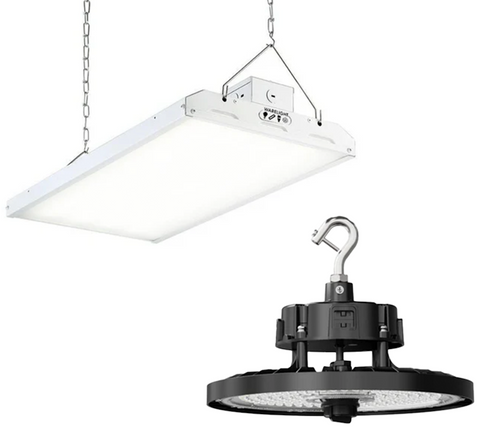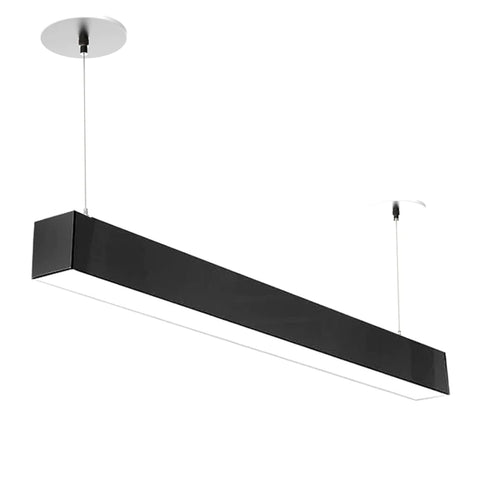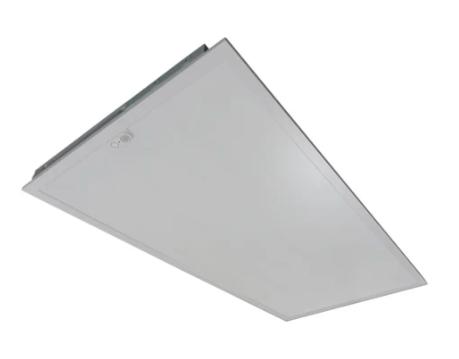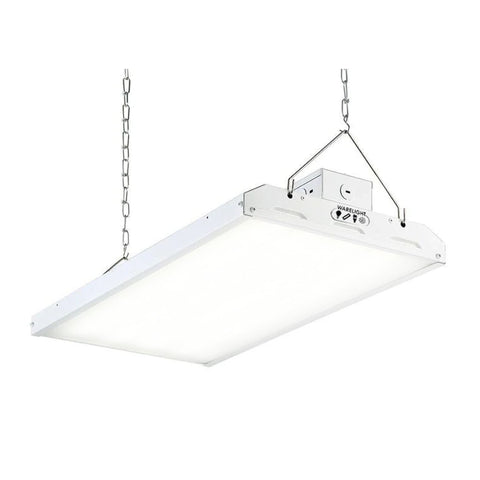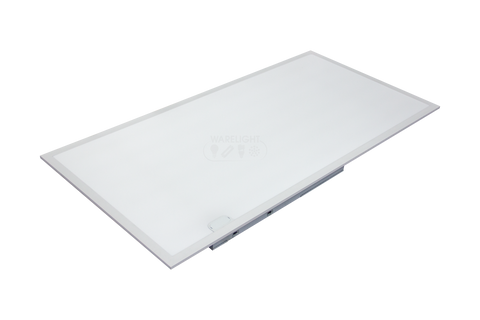When choosing the right lighting solutions for your space, the matter of lumens is bound to come up. While you may or may not have a passing understanding of lumens, it is helpful to have at least the basic principles under your belt to get the best results. Here are a few of the most common issues surrounding getting the right lumens for your space.
How Many Lumens Do I Need?
Many people confuse lumens needed because they think that more is automatically better. The truth is having the most concentrated or highest output of lumens may not be the best solution for the needs of the space. If you load up with too many lumens, you end up with an overpowering brightness that can lead to discomfort. If you opt for a lower lumen, you run the risk of it being too dim to accommodate the space. So, what do you do to remedy this problem? You follow a simple suggested calculation for figuring out lumens based on room size.
Lumens Calculator Room Size
The way to calculate how many lumens you need in a room is to consider a few aspects of the space. Using the width and the length of the room times to find your suggested lumens is easy. For example, if the room is 12 feet long in length and 10 feet wide in width, 12 feet times 10 feet equals 120 feet. Just remember that the way to calculate room size to find lumen is always length times width equals square foot.
How Many Lumens Per Square Foot?
Figuring out the size of the room with the above formula is only the first step in determining the lumens needed for the room. When lighting a room, you light it by suggested lumens per square foot. So, using the figure above as an example, you would be lighting for 120 feet based on 12x10 room. To figure out the lumens needed based on this figure, you would take the total lumens of the lamp you are considering using and divide it by the total square foot. This will tell you a figure of how many lumens are being used per square foot. From there, you can see if you are using the suggest number of lumens for the space.
Suggested Lumens Per Square Foot by Room
• Living rooms: 10–20 lumens
• Dining rooms: 30–40 lumens
• Bedrooms: 10–20 lumens
• Bathrooms: 70–80 lumens
• Hallways: 5–10 lumens
• Kitchens: 30–40 lumens
• Task Lighting: 70–80 lumens
You May Also Be Interested in These Articles...
How Bright is 5000 Lumens
When it comes to getting the right lighting solution for your needs, there are certain specifications you need to carefully consider. One of the most important things to look at when shopp...
Read Article High Bay LED Lighting
High Bay LED Lighting
 Industrial Low Bay Lighting
Industrial Low Bay Lighting
 Industrial Strip Lights
Industrial Strip Lights
 Vapor Tight Lighting
Vapor Tight Lighting
 LED Shop Lights
LED Shop Lights
 Hazardous Area / Explosion Proof Lighting
Hazardous Area / Explosion Proof Lighting
 Loading Dock Lights
Loading Dock Lights
 Construction / Portable Lighting
Construction / Portable Lighting
 Industrial Ceiling Fans
Industrial Ceiling Fans
 LED Work Lights
LED Work Lights
 Networked Controlled Lighting
Networked Controlled Lighting
 NEW Warehouse Lighting Fixtures
NEW Warehouse Lighting Fixtures
 American Made Industrial Lighting
American Made Industrial Lighting
 Clearance
Clearance
 Troffer Lights
Troffer Lights
 LED Flat Panel Lights
LED Flat Panel Lights
 Drop Ceiling Lights
Drop Ceiling Lights
 Suspended LED Lights
Suspended LED Lights
 LED Cylinder Lights
LED Cylinder Lights
 Exit / Emergency
Exit / Emergency
 Wrap Lighting Fixtures
Wrap Lighting Fixtures
 Gooseneck and Barn Lights
Gooseneck and Barn Lights
 Stairway & Corridor Lighting
Stairway & Corridor Lighting
 Hospital Bed Lights
Hospital Bed Lights
 Recessed Lighting
Recessed Lighting
 Wafer Lighting
Wafer Lighting
 RGB LED Lights
RGB LED Lights
 Grow Lights
Grow Lights
 Refrigeration Lighting
Refrigeration Lighting
 Commercial Sign Lights
Commercial Sign Lights
 LED Track Lighting Fixtures & Systems
LED Track Lighting Fixtures & Systems
 UV Disinfecting Lights & Air Purifier Fixtures
UV Disinfecting Lights & Air Purifier Fixtures
 American Made Commercial Lighting
American Made Commercial Lighting
 LED Flood Lights
LED Flood Lights
 Outdoor Wall Lights
Outdoor Wall Lights
 LED Area Lights
LED Area Lights
 Parking Lot Lights & Poles
Parking Lot Lights & Poles
 Outdoor Post Top Lights
Outdoor Post Top Lights
 LED Stadium Lighting
LED Stadium Lighting
 Canopy Lights
Canopy Lights
 Security & Motion Sensor Lights
Security & Motion Sensor Lights
 LED Bollard Lights
LED Bollard Lights
 Outdoor LED Linear Light Fixtures
Outdoor LED Linear Light Fixtures
 Solar Powered LED Lighting
Solar Powered LED Lighting
 Dusk to Dawn Lights
Dusk to Dawn Lights
 Landscape Lighting
Landscape Lighting
 Outdoor String Lights
Outdoor String Lights
 Coastal Wildlife Lighting
Coastal Wildlife Lighting
 Outdoor House Lights
Outdoor House Lights
 American Made Outdoor Lighting
American Made Outdoor Lighting
 Architectural Linear Lights
Architectural Linear Lights
 Architectural Grid Mount Lights
Architectural Grid Mount Lights
 Architectural Round Pendant Lights
Architectural Round Pendant Lights
 Architectural Square Linear Lights
Architectural Square Linear Lights
 Architectural X-Shaped Linear Lights
Architectural X-Shaped Linear Lights
 Architectural LED Wall Packs
Architectural LED Wall Packs
 Ceiling Fans
Ceiling Fans
 Ceiling Lights
Ceiling Lights
 Chandelier Lights
Chandelier Lights
 Pendant Lighting
Pendant Lighting
 Island Lights
Island Lights
 Under Cabinet Lighting
Under Cabinet Lighting
 Vanity Lights
Vanity Lights
 Wall Sconces
Wall Sconces
 LED Tape Lights
LED Tape Lights
 LED Mirrors
LED Mirrors
 LED Light Bulbs
LED Light Bulbs
 LED Tube Lights
LED Tube Lights
 LED Corn Lights
LED Corn Lights
 Vintage LED Bulbs
Vintage LED Bulbs
 Decorative LED Bulbs
Decorative LED Bulbs
 Fluorescent Light Bulbs
Fluorescent Light Bulbs
 Metal Halide Lamps
Metal Halide Lamps
 LED Magnetic Strip Retrofit Kits
LED Magnetic Strip Retrofit Kits
 LED Strip Light Retrofit Kits
LED Strip Light Retrofit Kits
 High Bay LED Retrofit Kits
High Bay LED Retrofit Kits
 LED Troffer Retrofit Kits
LED Troffer Retrofit Kits
 LED Wall Pack Retrofit
LED Wall Pack Retrofit
 LED Street Light Retrofit Kits
LED Street Light Retrofit Kits
 Recessed Lighting LED Retrofit Kits
Recessed Lighting LED Retrofit Kits
 Ballasts & Drivers
Ballasts & Drivers
 Emergency Ballast For LED & Fluorescent Lights
Emergency Ballast For LED & Fluorescent Lights
 Electrical Supplies & Mounting Kits
Electrical Supplies & Mounting Kits
 Electrical Tools
Electrical Tools
 Switches & Receptacles
Switches & Receptacles
 Electrical Power Cords
Electrical Power Cords
 Sensors and Timers
Sensors and Timers
 Smart Home Automation
Smart Home Automation
 High Bay Occupancy Sensors
High Bay Occupancy Sensors
 Electric Vehicle Chargers
Electric Vehicle Chargers
 Hand Dryers
Hand Dryers
 LED Shop Lights
LED Shop Lights
 Garage LED Light Fixtures
Garage LED Light Fixtures
 Office Lights
Office Lights
 Classroom Lights
Classroom Lights
 Church Lights
Church Lights
 Gym Lighting
Gym Lighting
 Factory Lights
Factory Lights
 Hospital Lights
Hospital Lights
 Walkway Lights
Walkway Lights
 Parking Lot Lights
Parking Lot Lights
 Exterior Building Lights
Exterior Building Lights
 Sports Lighting
Sports Lighting
 Airport Lights
Airport Lights
 NSF Rated Lights
NSF Rated Lights
 Restaurant Lights
Restaurant Lights
 Corridor Lights
Corridor Lights
 Barn Lighting
Barn Lighting


